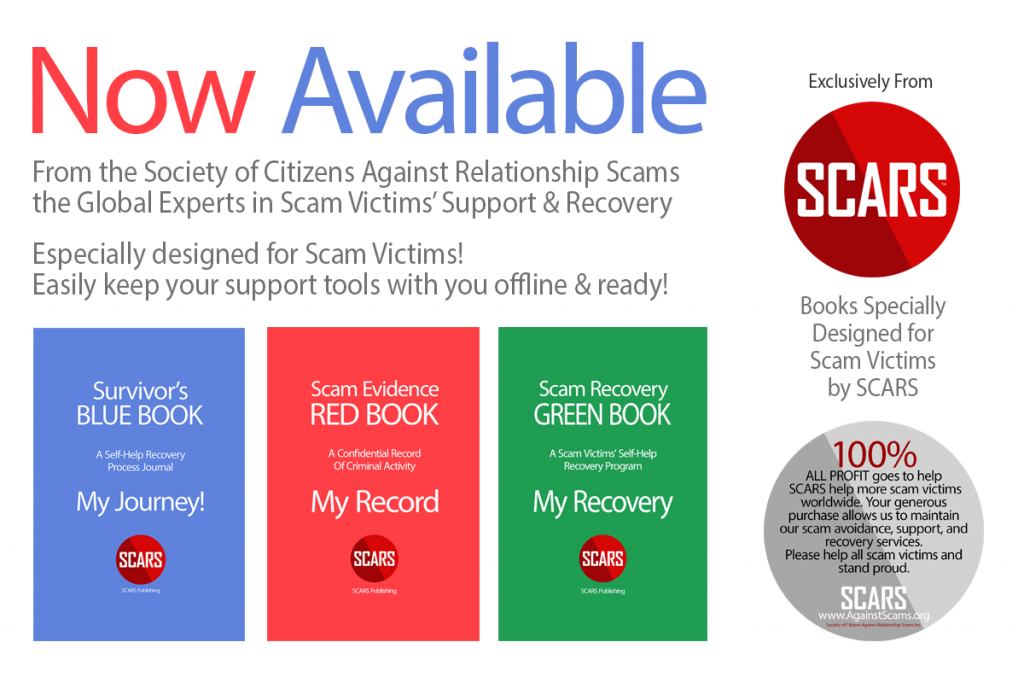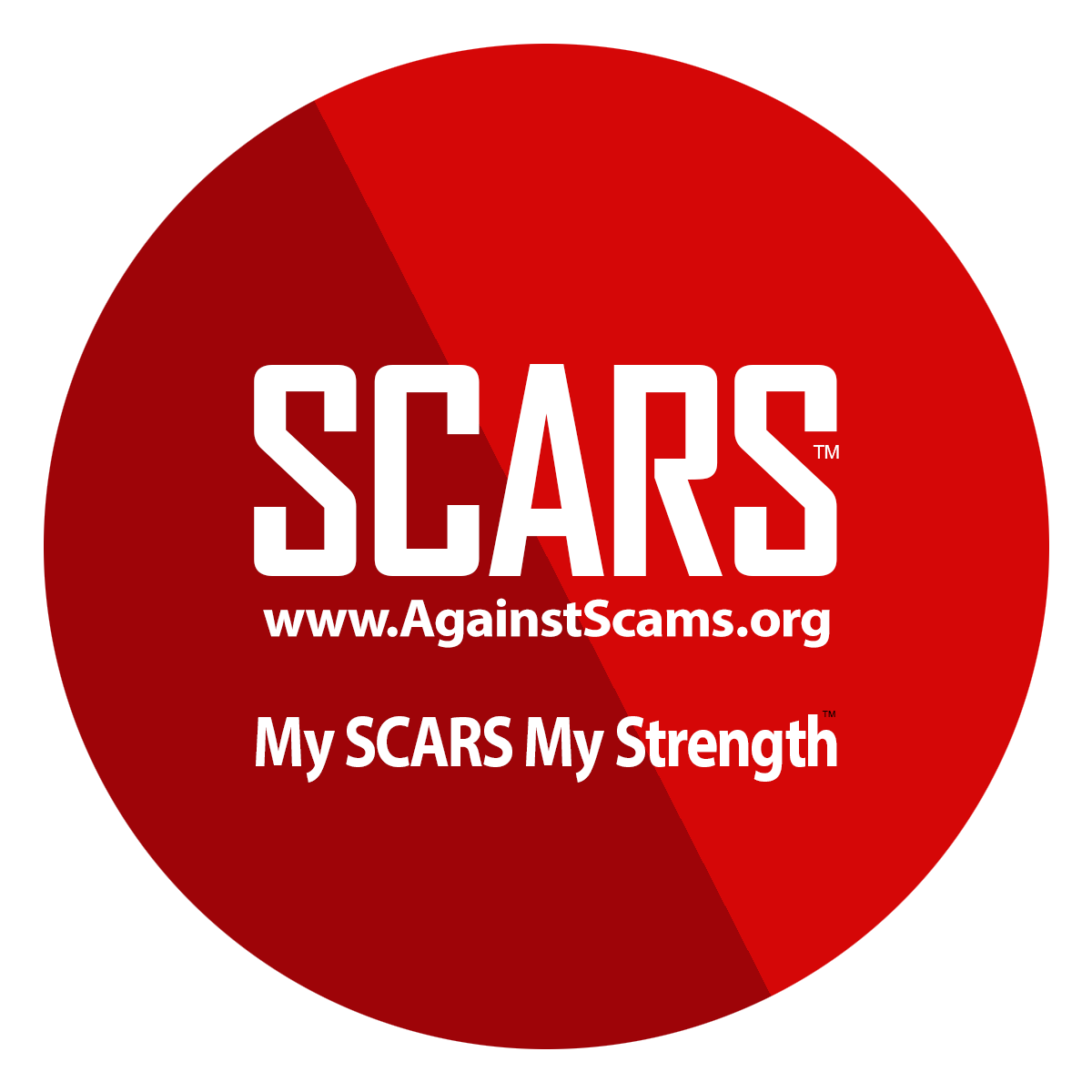Banking Industry Proposal To Reduce Scams Through A Victim Notification & Intervention Process
A SCARS Proposal To The Banking Industry
To Help Victims Avoid Financial Loss Through Bank Wire Transfers
Background Information
As of June 2023, there are approximately 4,500 new online scam victims a day that are using the banking system to perform wire transfers to criminals.
If, as reported by the FBI that the average loss to a relationship scam victim is approximately $14,000 then this is a staggering $63,000,000 PER DAY or $22,995,000,000 per year!
In the United Kingdom, the government has forced banking to assume responsibility for voluntary fraudulent transactions (authorized push payments) that result in a refund to the bank’s customer – the victim of financial fraud. We are seeing similar pressure in many other countries, especially the United States.
We are not talking about involuntary fraud in which the victims are protected, but where the victim was firmly under the manipulation & control of the criminals and performed the transfer (app) believing that they were helping a real person.
Every one of these victims, in effect, tells the bank that they know the person they (the victim) are sending the money to, either in person or via online mechanisms. In effect committing unwitting bank fraud themselves. Additionally, they may be violating other laws and regulations in the process. But because the victim is being manipulated and controlled to believe that what they are doing is for a real person, and psychologically coerced to perform the transfer, a strong argument can be made that it was not voluntary after all.
Additionally, every bank in the United States is obligated to report every suspicious transaction to the U.S. government under the BAS (Banking Security Act). Yet, it is believed that a significant percentage of these fraud-based transactions are never reported even though they are either of significant size or frequency to require it.
BSA (Banking Security Act) Provisions
The U.S. Bank Security Act (BSA) requires banks to report unusual banking activity.
The BSA is a federal law that was enacted in 1970 to combat money laundering and other financial crimes. The BSA requires banks to file reports called Suspicious Activity Reports (SARs) if they know, suspect, or have reason to suspect that a transaction is related to money laundering or another financial crime.
The BSA defines “unusual” activity as any transaction that:
- Is inconsistent with the customer’s known business or personal activities;
- Involves a large amount of cash;
- Is conducted by a shell company or other entity that does not have a legitimate business purpose;
- Is conducted in a foreign country that is known to be a hotbed of money laundering; or
- Is otherwise suspicious.
Banks are required to file SARs with the Financial Crimes Enforcement Network (FinCEN), a bureau of the U.S. Department of the Treasury. SARs are confidential and are not made public. However, FinCEN can share SARs with law enforcement agencies if they believe that the information is necessary to investigate or prosecute a financial crime.
The BSA’s SAR reporting requirements are designed to help law enforcement identify and investigate money laundering and other financial crimes. By filing SARs, banks can help to keep the financial system safe from criminals.
Here are some examples of unusual banking activity that may require a SAR to be filed:
- A customer deposits a large amount of cash into their account and then withdraws it all in a short period of time.
- A customer makes a series of wire transfers to countries that are known to be hotbeds of money laundering.
- A customer’s account activity suddenly changes, such as the customer starts making large, unusual purchases.
- A customer’s account is used to receive funds from a known terrorist organization.
But the problem is that it has been suggested that banks are poor in compliance with this regulation, and also that the reporting is so delayed that it is useless in stopping these transactions. So it comes back to reliance on the customer to know and stop these transactions, but that always fails.
Why Has Education & Even Interventions Failed Thus Far?
The industry generally has reviewed and considered various forms of educational materials for its customers. Many have pages on their websites that advise customers to be cautious about the various types of scams that can affect them.
In the United Kingdom, they enable bank employees to call the local police who respond quickly and discuss the issues with the customers. This works extraordinarily well in the U.K. where customers and bank employees respond well to the local police intervention, and it has reduced fraud money transfers by as much as 95%. However, this would not work in the United States.
Our organization (SCARS) believes that the vast majority of this scam avoidance information fails to affect the bank customer (victims) in any meaningful way. No one believes it will happen to them, and they do not fully understand the impact or consequences.
This is what we are trying to change!
Why?
- Generally, people do not believe that scams (financial fraud) can happen to them as a result of cognitive biases and denial.
- Once someone has become a Relationship Scam Victim, they are completely under the psychological control of their scammers (criminals).
- As a result of the manipulation scam victims firmly believe that the transactions are justified and being sent to someone they actually know.
- Victims are generally incapable of stopping by trying to intellectualize with them, just as an addict is incapable of stopping by reasoning with them, because victims are controlled by hormones & neurotransmitters manipulated and controlled by the criminals.
- In addition, some bank employees (without any real policy) have tried to coach victims about scams – but this also fails.
What Would It Take To Stop These Transactions & Victimization Of Bank Customers?
SCARS interacts with more than a million scam victims per year. As a result of that close interaction with so many victims of financial fraud, we have developed a deeper understanding of the mindset of victims (the psychology of scams – from a psychological, anthropological, and sociological perspective) and the levels of manipulation they are subjected to. In addition, we have reviewed hundreds of academic studies that identify key psychological facts that both drive victimization and open up a possibility for effective intervention.
In December 2022, SCARS conducted interviews and surveyed over one thousand scam victims who had sent money to their criminals via their bank. During the survey, victims were asked the following questions:
- “Would you have stopped if the bank staff told you you were being scammed?”
- “Would you have stopped if the bank refused to send the wire – would you have sent the money by another means?”
- “Would you have stopped if the bank called a family member to explain you might be the victim of a scam?”
- “Would you have stopped if the bank made it clear that there could be financial and potentially criminal consequences from performing the transfer?”
The result was very interesting: 97% of actual scam victims who had sent money via an authorized push payment said that they would have paused and rethought their actions, leading over 70% to say they would have not made a transfer and would have realized it was probably a scam or fraud.
SCARS believes this creates a unique opportunity to craft an intervention process that can save victims. And in so doing, by its nature can actually help these financial institutions appear to be more active in trying to stop these crimes, possibly reducing their potential liability in the future.
The SCARS Suggested Intervention Process
Scenario: a bank customer asks to perform a transfer that meets the criteria of unusual banking activity or where the bank’s staff (in branch, customer service, or fraud department) believes that it is unusual.
The bank requires an employee to speak with the customer – in person if possible, or by phone. They explain the concern and REQUIRE that the customer sign an “unusual banking activity form.”
The purpose of the Unusual Bank Activity Form is to cause an emotional reaction with the customer (victim) – because this would/could help the victim realize they are being scammed and change their intent to send the wire by understanding the potential consequences of their action.
The Psychology:
These victims are almost always firmly under the control of the scammers/criminals throughout the duration of the relationship scam. These victims would (nominally) do anything for the person they are connected to – including sending their life savings, and going so far as to make themselves homeless and penniless, This control is based upon an extended process of exploiting their vulnerability, grooming them, activating their own hormones and neurotransmitters essentially making them dependent on them, manipulating and isolating them, and controlling them to act against their own best interests by sending the money.
However, there is a technique that can be used to counter this control – namely fear!
This is where the intervention process comes in, by creating a pause, injecting fear into the mind of the victims, and hopefully helping them realize that this is not only the wrong thing to do but that it may come with serious consequences. This is where we saw strong responses in the surveyed victims when asked about it.
Unusual Bank Activity Form
Name of Customer: ________________________________
Account Number: ___________________________________
CUSTOMER NOTIFICATION
Because of your account activity and history, we have identified the requested transaction as being an Unusual & Suspicious Banking Activity.
We are required to inform you that the transaction that you have requested may violate U.S. Law. Specifically under the Banking Security Act, we are required to notify the U.S. Department of the Treasury about this transaction, and this may include both law enforcement and Internal Revenue notification as well.
Since we believe that this is a suspicious transaction we are concerned that it is a fraudulent transaction in violation of the law. Additionally, it may violate both regulations against the funding of terrorism and anti-money laundering.
If you proceed with your request to process this transaction and transfer the funds, we are obligated to report the transaction and you to the United States Federal Government. This may result in a criminal investigation that might result in criminal charges.
Please check the following boxes if you wish to proceed:
[ ] I certify that I know, as a real person, the person I am sending the money to.
[ ] I certify that I am not sending money to any criminals or criminal enterprise or organization.
[ ] I certify that I know, for a fact, where and how the money will be used and that it will not, in any way, provide funding for a terrorist organization.
[ ] I certify that I have not engaged in any unlawful activity in performing this transaction, such as making false statements, committing bank or wire fraud, or committing forgery, and that this transaction is in full compliance with the law.
I accept this notification and wish to proceed with the transaction under penalty of perjury. I understand that ___name_of_financial_institution___ will have to file a notification under the Banking Security Act and that if any of my statements are false might result in criminal investigation and potential prosecution.
Signed: ___________________________________
Legal Name: _____________________________________
Address: _______________________________________
City: ____________________ State: ____ Zip Code: ______
Mobile Phone: _______________________
Date Signed: ________________________
Witnessed By: _______________________
Title: _____________________________
Remember The Purpose Of This Intervention
Given the millions of Americans that are scammed EVERY year, you have customers coming to you to give away their life savings almost every day!
This is not intended to be customer friendly, this is intended the stop a transaction that can result in the death of your customer since as many as 20 scam victims take their own life every day! This is a life-saving intervention.
Someone that is engaged in a real and completely lawful transaction will sign it and continue, but scam victims under the manipulation and control of criminals will pause and reconsider, and that is enough to break the bond that holds them trapped.
NOTE: THIS IS NOT INTENDED FOR COMMERCIAL BANK CUSTOMERS – ONLY INDIVIDUALS.
We hope that you will consider implementing a variation of this process to help your customers retain their deposits with your organization. Remember, its goal is to instill fear so as to break the chains that bind the customer, so please do not water it down.
Also, understand that there are resources available to scam victims. Our organization stands ready to help any scam victims that we can. You can refer them to sign up for our support services at support.AgainstScams.org
Feel free to contact us with any questions or comments.
Sincerely,
Society of Citizens Against Relationship Scams Inc.
A crime victims’ assistance and crime prevention nonprofit organization supporting scma victims worldwide.
www.AgainstScams.org contact@AgainstScams.org
ABOUT SCARS:
SCARS is an incorporated crime victims’ assistance & crime prevention nonprofit organization. Incorporated in the State of Florida USA, with offices in Miami Florida USA & Monterrey NL Mexico, and partners & affiliates in more than 60 countries worldwide. We are partnered with the US Department of Homeland Security, Federal Trade Commission (Sentinal Reporting Partner), and other agencies around the world.
Society of Citizens Against Relationship Scams Inc.
A Worldwide Crime Victims Assistance & Crime Prevention Nonprofit Organization
Incorporated Florida U.S.A.
Visit: www.AgainstScams.org
Contact Us: Contact@AgainstScams.org
The Latest SCARS Corporate Posts:
FAQ: How Do You Properly Report Scammers?
It is essential that law enforcement knows about scams & scammers, even though there is nothing (in most cases) that they can do.
Always report scams involving money lost or where you received money to:
- Local Police – ask them to take an “informational” police report – say you need it for your insurance – get a police report number
- U.S. State Police (if you live in the U.S.) – they will take the matter more seriously and provide you with more help than local police
- Your National Police or FBI www.IC3.gov & FTC https://reportfraud.ftc.gov/#/?orgcode=SCARS
- The SCARS|CDN™ Cybercriminal Data Network – Worldwide Reporting Network on www.Anyscam.com
This helps your government understand the problem, and allows law enforcement to add scammers on watch lists worldwide. Your reports are essential even if the police cannot take action!
Disclaimer:
SCARS IS A DIGITAL PUBLISHER AND DOES NOT OFFER HEALTH OR MEDICAL ADVICE, LEGAL ADVICE, FINANCIAL ADVICE, OR SERVICES THAT SCARS IS NOT LICENSED OR REGISTERED TO PERFORM.
IF YOU’RE FACING A MEDICAL EMERGENCY, CALL YOUR LOCAL EMERGENCY SERVICES IMMEDIATELY, OR VISIT THE NEAREST EMERGENCY ROOM OR URGENT CARE CENTER. YOU SHOULD CONSULT YOUR HEALTHCARE PROVIDER BEFORE FOLLOWING ANY MEDICALLY RELATED INFORMATION PRESENTED ON OUR PAGES.
ALWAYS CONSULT A LICENSED ATTORNEY FOR ANY ADVICE REGARDING LEGAL MATTERS.
A LICENSED FINANCIAL OR TAX PROFESSIONAL SHOULD BE CONSULTED BEFORE ACTING ON ANY INFORMATION RELATING TO YOUR PERSONAL FINANCES OR TAX RELATED ISSUES AND INFORMATION.
This content and other material contained on the website, apps, newsletter, and products (“Content”), is general in nature and for informational purposes only and does not constitute medical, legal, or financial advice; the Content is not intended to be a substitute for licensed or regulated professional advice. Always consult your doctor or other qualified healthcare provider, lawyer, financial, or tax professional with any questions you may have regarding the educational information contained herein. SCARS makes no guarantees about the efficacy of information described on or in SCARS’ Content. The information contained is subject to change and is not intended to cover all possible situations or effects. SCARS does not recommend or endorse any specific professional or care provider, product, service, or other information that may be mentioned in SCARS’ websites, apps, and Content unless explicitly identified as such.
The disclaimers herein are provided on this page for ease of reference. These disclaimers supplement and are a part of SCARS’ website’s Terms of Use.
Legal Notices:
All original content is Copyright © 1991 – 2023 Society of Citizens Against Relationship Scams Inc. (D.B.A SCARS) All Rights Reserved Worldwide & Webwide. Third-party copyrights acknowledge. Incorporated in the U.S. State of Florida, DBA registered.
SCARS, SCARS|INTERNATIONAL, SCARS, SCARS|SUPPORT, SCARS, RSN, Romance Scams Now, SCARS|INTERNATION, SCARS|WORLDWIDE, SCARS|GLOBAL, SCARS, Society of Citizens Against Relationship Scams, Society of Citizens Against Romance Scams, SCARS|ANYSCAM, Project Anyscam, Anyscam, SCARS|GOFCH, GOFCH, SCARS|CHINA, SCARS|CDN, SCARS|UK, SCARS|LATINOAMERICA, SCARS|MEMBER, SCARS|VOLUNTEER, SCARS SCARS Australia, Cybercriminal Data Network, Cobalt Alert, Scam Victims Support Group, SCARS ANGELS, SCARS RANGERS, SCARS MARSHALLS, SCARS PARTNERS, are all trademarks of Society of Citizens Against Relationship Scams Inc., All Rights Reserved Worldwide
Contact the law firm for the Society of Citizens Against Relationship Scams Incorporated by email at legal@AgainstScams.org




I think this is thorough and fantastic. It would have had a very good chance of stopping me.
I definitely think the intervention process is explained clearly and concise. Had I been given this form when I wire transferred the big funds for the purpose of they say paying tax or clearing fees, etc… this would have waken up a part of me that’s been manipulated.